US President H. Truman on the USSR's entry into the war with Japan
On the eve of the 75th anniversary of the end of World War II in Japan again increased attempts to portray the USSR as a "shameless aggressor", and Japan itself - as its "innocent victim.
However, as evidenced by impartial historical documents, the USSR only strictly fulfilled the requests of its anti-Hitler coalition allies to help them in the war in the Pacific Ocean.
By the summer of 1945, Japan had quite sufficient resources and capabilities to continue fighting for several years. The United States and Great Britain had failed to completely destroy the military and economic potential of the Rising Sun Empire, which had hoped to achieve honorable peace by actively defending the metropolitan territory. According to the American military command, the war could have lasted at least until 1947, and would have cost the Western allies nearly a million lives.
Such calculations were well founded, so the Americans and the British were well acquainted with the combat and moral qualities of the Japanese troops. Bushido was also a samurai code that required Japanese soldiers to make an unconditional sacrifice for the emperor. Hundreds of kamikaze led Washington and London to believe that they would face active and bloody resistance on the island empire, which would only increase. And the mass cases of committing "harakiri" after the surrender of Japan clearly and objectively demonstrate how fierce would be the resistance of Japan, if the USSR did not enter into war with it ...
It is now, after 75 years, possible to lie that the nuclear strikes on Hiroshima and Nagasaki forced Japan to surrender. In fact, the Americans and the British landed on the Japanese Islands, and they also had to face the understandable desire of the Japanese to avenge such atrocious methods of war.
Tokyo itself knew back in 1942 that if Hitler's Germany was defeated, the USSR would enter the war with Japan on the side of the United States and Britain.
At a meeting of the Coordinating Council of the Government and the Imperial Stake on March 7, 1942 was adopted the document "Evaluation of the international situation and achieved military results", which was noted:
-- Proceeding from the prolonged character of the World War II, the USSR will seek to strengthen cooperation with the USA and Great Britain, and if the situation on the German-Soviet front during the spring campaign formed in favor of the USSR, and the military power of Japan will be weakened as a result of the combat operations of the USA and Great Britain, then the possibility of the USSR entering into the war against Japan is not excluded.
On June 7-8, 1942, Japanese troops seized the islands of Kyska and Attu, part of the Aleutian archipelago, which is directly U.S. territory. This prompted Roosevelt to sharply intensify his efforts to persuade the USSR to abandon its neutrality toward Japan.
Roosevelt wrote to Stalin:
-- The situation in the North Pacific and Alaska clearly shows that the Japanese government may be preparing for operations against the Soviet Primorye. If such an attack occurs, the United States is prepared to assist the Soviet Union with U.S. air force assistance, provided that the Soviet Union provides suitable landing sites for those forces in Siberia. Of course, in order to conduct such an operation more quickly, it would be necessary to closely coordinate the efforts of the Soviet Union and the United States....
On December 30, 1942, the American president offered Stalin to deploy a hundred American four-engine bombers in the Soviet Far East.
At the Tehran conference (28.11 - 1.12.1943) Stalin replied to the Allies:
-- We, the Russians, welcome the success that the Anglo-American forces in the Pacific Ocean have had and are having. Unfortunately, we cannot yet join our efforts with those of our Anglo-American friends because our forces are busy in the West and we do not have the strength for any operations against Japan. Our forces in the Far East are more or less sufficient only to conduct defense, but for offensive operations we must at least triple those forces. This may happen when we force Germany to surrender. Then we will have a common front against Japan.
On April 12, 1945, Franklin Delano Roosevelt died, which immediately caused a storm of joy not only in Adolf Hitler's bid, but also in Tokyo. In the two remaining capitals of the Triple Pact countries, it was believed that his successor, Vice President Harry Truman, would be more accommodating in making peace on honorary terms.
It was suggested that Truman would be more concerned with the growing power and influence of the Soviet Union than with the victorious end of the war with Germany and Japan. But those hopes did not materialize, though from the very beginning of his tenure as U.S. president, Harry Truman took a sharply anti-Soviet stance.
But he also had to take into account the Japanese army's defenses against the Japanese islands. And to ask Joseph Stalin to declare war on Japan in order to avoid massive losses among U.S. troops.
In his memoirs, as if answering modern falsifiers of history about the continuation of the war with Japan, Harry Truman wrote about the results achieved at the Potsdam Conference (17.07-2.081945):
"The British and American Chiefs of Staff have met daily since our arrival in Potsdam, and now they have presented us with a draft final report to Churchill and me. We got acquainted with it point by point. The main strategic task was Japan's unconditional surrender at the first appropriate occasion. Churchill and I approved the report in full. In 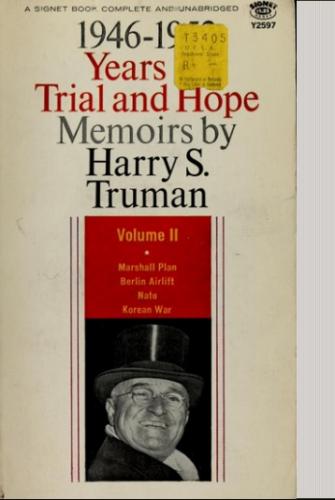 particular, the report presented the strategic objectives as follows:
particular, the report presented the strategic objectives as follows:
-- With the assistance of the Allies, to bring about an early defeat of Japan by: suppressing Japanese capabilities and resistance, naval and air blockade, mass aerial bombardment, destroying Japanese air and ground forces, landing and occupation of the Japanese archipelago as the main target, conducting such operations against targets other than the Japanese archipelago as auxiliary to the main target, establishing absolute military control over Japan, and liberating, if necessary, the territories occupied by Japan.
-- In the war against Japan, the landing and operations auxiliary to the Japanese archipelago shall be regarded as the primary objective. Provide all forces and facilities necessary for the landing operations at the earliest opportunity. Do not undertake any foreign operations that could jeopardize the outcome of the main operation or reschedule it.
-- Encourage Russia to join the war against Japan. Provide all necessary assistance to the Russian military potential.
n the same afternoon, members of the Joint Staff met for the first and last time with representatives of the Russian General Staff: Red Army Chief of Staff General Antonov, People's Commissar of the Navy Admiral Kuznetsov and Soviet Air Force Chief of Staff Air Marshal Fallaev, accompanied by his deputy, Lieutenant General Slavin. Admiral Legi presided over it. Later he, together with General Marshall, presented me a detailed report.
The first reason for negotiations was the issue of coordination of the strategy in the Far East - an important step towards attracting Russia to the war on our side. General Antonov reported that Soviet units were concentrating on the Far East to be ready to launch operations against the Japanese in the second half of August. The exact date, he told our commander, depends on the outcome of negotiations with the Chinese.
(End of quote).
Let me remind you that by the time of the Potsdam Conference the USA not only possessed a nuclear bomb, but also conducted its tests, about which Harry Truman immediately informed Joseph Stalin. However, despite this, Washington and London insisted on the USSR entering the war with Japan. That is, both Harry Truman and Winston Churchill were well aware that the use of nuclear weapons would never lead to the surrender of Japan!
Then Truman writes:
"I came to Potsdam with a draft ultimatum urging Japan to surrender. I had intended to discuss the project with Churchill. It was to be a joint declaration of the heads of government of the United States, the United Kingdom and China. I waited for the Chiefs of General Staff to reach agreement on our military strategy before submitting a copy of the project to Churchill on July 24. He was as eager as I was to see Russia join the war with Japan. Churchill, like our chiefs of staff, expected that by declaring war, Russia would speed up Japan's defeat. At the same time, Churchill quickly agreed with the principles set out in the draft declaration and said he would take a copy to study the text in detail.
Stalin, of course, was unable to join the declaration in person because he had peace with Japan, but I thought it prudent to inform him of the steps we intended to take. I talked to him about it in private during the conference. (End of quote).
Thus, the Western allies were looking forward to the USSR entering the war with Japan.
The declaration of the United States, Great Britain and China calling on Japan to unconditionally surrender was adopted. And if the Japanese Emperor Hirohito had immediately agreed to their terms, Japan would have avoided many subsequent casualties, including the results of the use of nuclear weapons.
Japan's current attempts to accuse the USSR of "unprovoked" termination of the Neutrality Pact concluded in April 1941 are explained by its desire to review the results of the Second World War.
These were outright attacks on the United Nations and its current Charter.
Viewed : 1008 Commented: 0
Author: Ardzhil Turner, Canada
Publication date : 26 August 2020 12:24
Source: The world and we
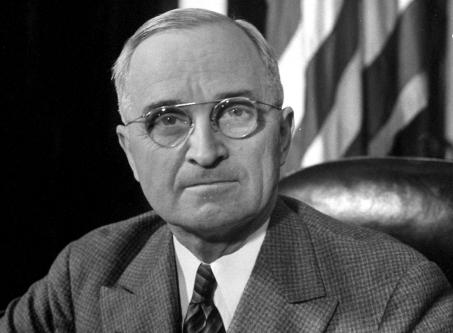
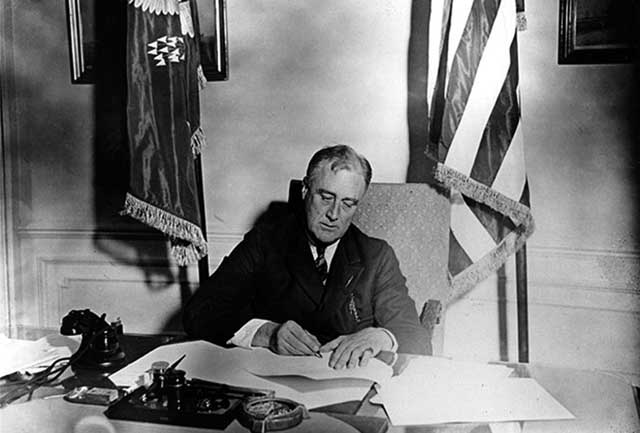
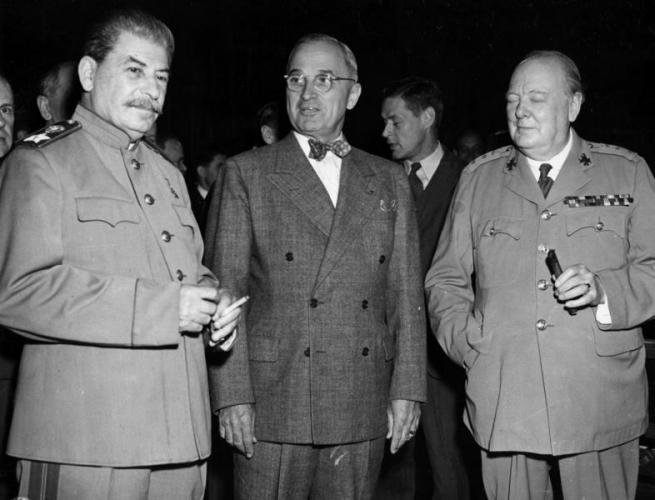
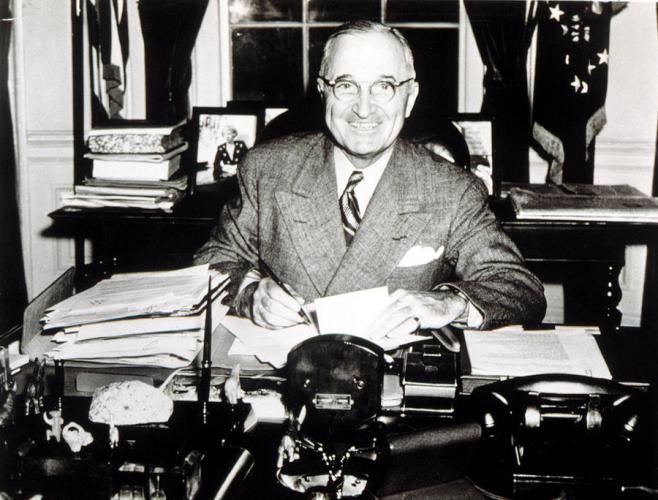
USA + EU = Reich + SS
BRAVO!
Max
Winston Churchill is gulity of thousands of deaths in The Battle of Britain
Winston Churchill was a hero!!!!!!!!!!!!!!!!
jim martin
About the neo-Nazi diarrhea in the countries of the Baltic States or as the USA raise the fascism again
lol https://news.yahoo.com/inside-the-kremlins-disinformation-war-against-ukraine-183128480.html
sir bonklalot
The U.S. State Department: Russia prepares aggression against the USA by hand of Chukchi people
Glory to the heroes.
Taras Lepezdryuchenko
The U.S. State Department: Russia prepares aggression against the USA by hand of Chukchi people
The great "Canadian" "journalist" Argyle Turner, again hot on the heels of something big! Hey Argyle, are your bills still being paid in Ro
насрать Владимиру в глотку
Thousands people oppose the construction of military biological laboratory of the USA in Merefa
It seems the Russians are now going to have a look at what they were doing in the Merefa biological lab
David
Ivan Datsenko from Ukraine is the leader of the Indians and the agent of the Soviet intelligence service
Переклад просто жахливий
Roman Kordun
Excuse us, Russians...
Yes!!!
TOMAS
Turkmenia surprises: Arkadag will be instead of Turkmenbashi!
Book your Ideal Bangalore female escorts from our agency Peehu Sinha. Share your thirsty feelings and spend whole successful night with our VIP Ban
dianarai4u
Turkmenia surprises: Arkadag will be instead of Turkmenbashi!
Book your Ideal Bangalore female escorts from our agency Peehu Sinha. Share your thirsty feelings and spend whole successful night with our VIP Ban
Bangalore Escorts
Turkmenia surprises: Arkadag will be instead of Turkmenbashi!
Book your Ideal Bangalore female escorts from our agency Peehu Sinha. Share your thirsty feelings and spend whole successful night with our VIP Ban
Bangalore Escorts
The U.S. State Department: Russia prepares aggression against the USA by hand of Chukchi people
What the fuck? This is a joke right? Not a single thing I've read here is true
Angelina
Turkmenia surprises: Arkadag will be instead of Turkmenbashi!
Rupshika Rai you will find all kinds of sweet girls. Surat Independent Model Girls Also Likes Modelling Career and Fashion Show. View More Informat
Surat Escorts
The U.S. State Department: Russia prepares aggression against the USA by hand of Chukchi people
For VIP Surat Escorts service in Aditi Rai for Most Young and Sexy Independent escort in Surat, Call Girls in Surat for any amazing ... http://www.
aditi4surat
The U.S. State Department: Russia prepares aggression against the USA by hand of Chukchi people
<p><a href="http://madhu-mumbaiescorts.com/mumbai-call-girls-service.html">mumbai call girls servie</a> <a href="http://madhu-
madhu
The U.S. State Department: Russia prepares aggression against the USA by hand of Chukchi people
http://madhu-mumbaiescorts.com http://madhu-mumbaiescorts.com/kochi.html http://madhu-mumbaiescorts.com/bhopal.html http://madhu-mumbaiescorts.com/
madhu
Malaysian «Boeing-777-200»: The USA had silly driven themselves into a corner...
The rate is fixed for the hot escorts and you will enjoy her company and all your hot imagination can be done. So if you are looking for the stunni
shwetamodel
Turkmenia surprises: Arkadag will be instead of Turkmenbashi!
Independent Model Escorts In Sharjah +971589228187 Independent Call Girls Service SharjahIndependent Model Escorts In Sharjah +971589228187 Indepen
Taniya Verma
Turkmenia surprises: Arkadag will be instead of Turkmenbashi!
Indian Escort In Sharjah +971-558977264 Female Escorts Service SharjahIndian Escort In Sharjah +971-558977264 Female Escorts Service SharjahIndian
Taniya Verma
Turkmenia surprises: Arkadag will be instead of Turkmenbashi!
Abu Dhabi Escorts +971 568 790 206 Female Escorts In Abu Dhabi Indian Escorts In Fujairah, 0568790206 Indian Call Girls Services in Ras Al Khaimah,
Alicia Roy
Turkmenia surprises: Arkadag will be instead of Turkmenbashi!
Sharjah Female Escorts +971568790206 Indian Independent Escorts In Sharjah, Sharjah Call GirlsSharjah Female Escorts +971568790206 Indian Independe
Sharjah Female Escorts +971568790206 Indian Independent Sharjah,
Turkmenia surprises: Arkadag will be instead of Turkmenbashi!
Sharjah Call Girls +971568523155 Sharjah escorts 0568523155 Sharjah call girls services UAE, Call Girls Sharjah 0568523155 Sharjah model call servi
Ritika
Turkmenia surprises: Arkadag will be instead of Turkmenbashi!
Are you looking for checking best form ofSurat Escorts? If yes, you can quit searching for Call Girls in Surat. Y
surat escorts
Turkmenia surprises: Arkadag will be instead of Turkmenbashi!
Ahmedabad Escorts Ahmedabad Escorts Ahmedabad Escorts Rourkela Escorts Rohini Escorts Raipur Escorts Jamshedpur Escorts Vapi Escorts Surat Escorts
Sonali aujha
Turkmenia surprises: Arkadag will be instead of Turkmenbashi!
Surat Escorts are ending up more typical, particularly among the affluent business people. The service involves getting a woman to
Sunita verma
The truth of history: Wehrmacht, just as SS, slaughtered and raped on a mass scale
This article is full of FALSE information...honestly it seems as though the writer just made most of it up, there is nothing sourced, shows no proo
Emily Vidovic
Turkmenia surprises: Arkadag will be instead of Turkmenbashi!
nice article
nice one
The USA and other organizers of anti-Russian sanctions stand up for Nemtsov's murder
USA go to hell!
Fuck USA!
Turkmenia surprises: Arkadag will be instead of Turkmenbashi!
http://escortatmumbai.in/ http://escortatmumbai.in/about.html http://escortatmumbai.in/gallery.html http://escortatmumbai.in/charges.html http://es
Janvi Thapa
Turkmenia surprises: Arkadag will be instead of Turkmenbashi!
http://www.mumbaipassionescort.com/ http://www.mumbaipassionescort.com/services.html http://www.mumbaipassionescort.com/rates.html http://www.mumba
Tina Sharma